‘We just ran’: Families struggle as Pakistan floods destroy homes, fields and food supplies
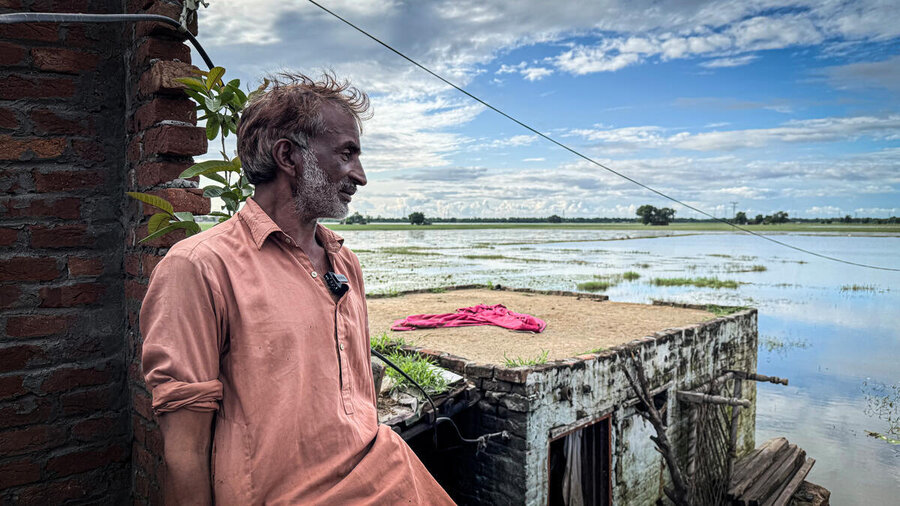
“Everything was swept away. We don’t even have proper clothes to wear now. The children don’t have clothes or shoes. We have no food, no utensils – I had blankets stored in a box, but the water ruined them.”
Tayyaba (her surname is withheld for her protection) is among more than 6 million people in Pakistan reeling from record monsoon rains that, since August, have left close to 4 million hectares – an area the size of Switzerland – submerged, according to the World Food Programme.
Nearly a 1,000 people have been killed, with more than 8,000 homes, 200 bridges and vast stretches of roads destroyed.
“I have no options left,” said Tayyaba. “My husband is a labourer – sometimes he finds work, sometimes he doesn’t.”
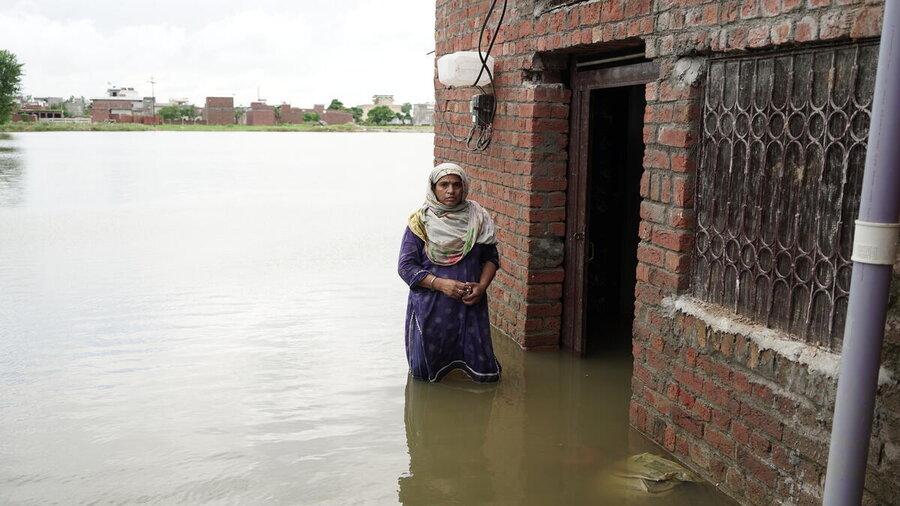
The family lives in Daska, in the Sialkot district of northeast Punjab – Pakistan’s breadbasket.
The Government has declared a climate and agriculture emergency, as standing floodwaters threaten the upcoming harvest season – and food security across the country. The planting window – which ends in early November – is now under serious threat. In Punjab, fields remain flooded and waterlogged, irrigation channels are damaged and land preparation has been delayed
Many farmers have also lost seed grain they had stored.
“The situation is dire,” said WFP communications officer Anam Abbas. “People have lost their homes, their livelihoods – basically everything. Many went to makeshift camps set up by the Government, where they will stay until the waters recede.”
Jack Frith-Powell, Head of Emergencies for WFP in Pakistan, highlighted both the scale of the floods and the strength of the national response.
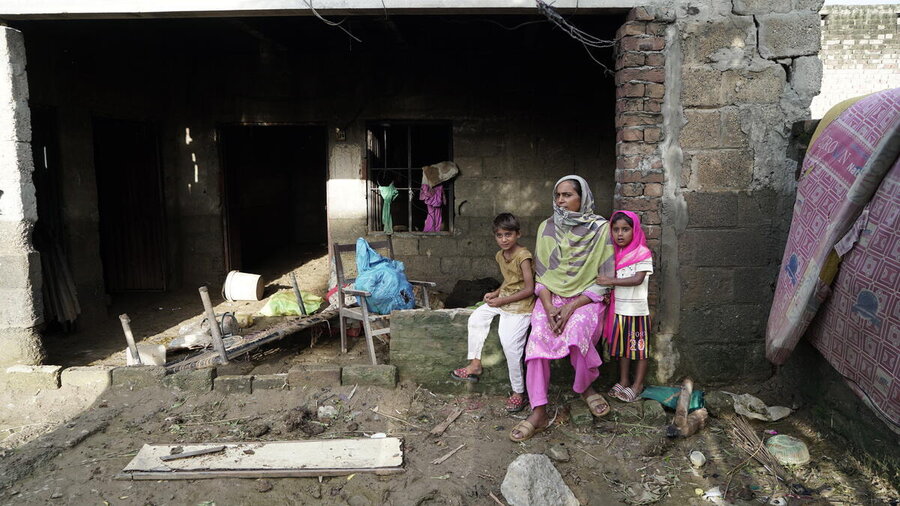
“The flooding in northern Punjab was significant, but early-warning systems and strong local preparedness helped communities cope,” he said. “When the waters moved south, the situation became more severe. Many families had little or no warning and were forced to flee in the middle of the night as protective banks were breached.”
WFP’s role is to support the Government-led response with technical expertise and additional resources, ensuring assistance reaches people in the greatest need, he added.
“Evacuation and relief responses were massive and commendable,” said Frith-Powell. The scale of the disaster, however, “stretched resources in areas that had not faced such flooding in recent years”.
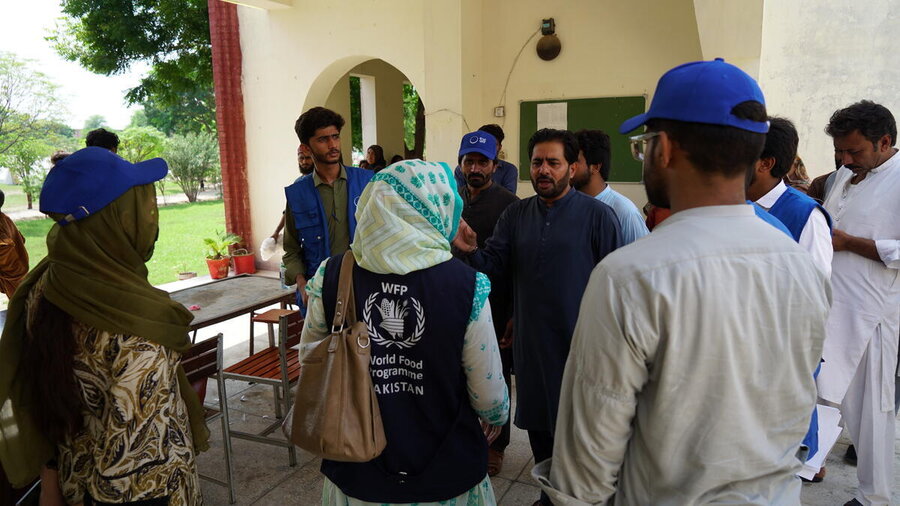
Ahead of the floods, WFP triggered anticipatory action (AA) measures that supported 12,000 people through early-cash transfers (while early-warning messages were sent to 800,000 people).
These funds enabled families to meet immediate food needs, evacuate in good time, purchase essential items and protect their livestock.
“AA interventions allow governments, communities and families to act days before a climate shock occurs, mitigating the impact on food security, lives and livelihoods. This puts families in a stronger position than those relying solely on emergency response.”
WFP is now scaling up unconditional cash and food assistance to help people recover. That is not to underplay the critical role the humble biscuit has been playing – fortified with nutrients, enriched snacks are indispensable in assisting people whose lives have been turned upside down.
“Fortified biscuits are small but crucial,” said Frith-Powell. “Families with babies, who haven’t eaten for nine hours, can get something to eat before government food distributions arrive. In the early phases of an emergency, that small snack makes a real difference.”
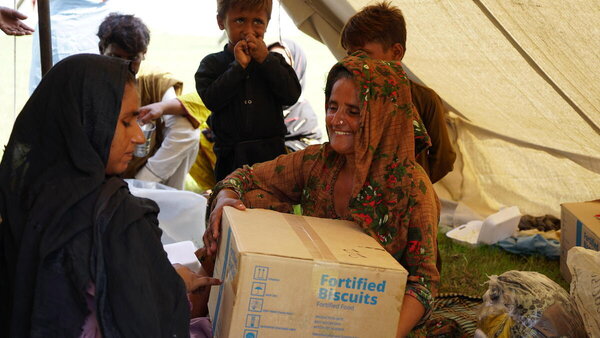
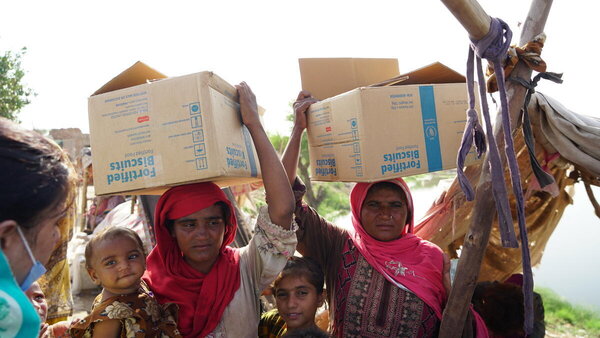
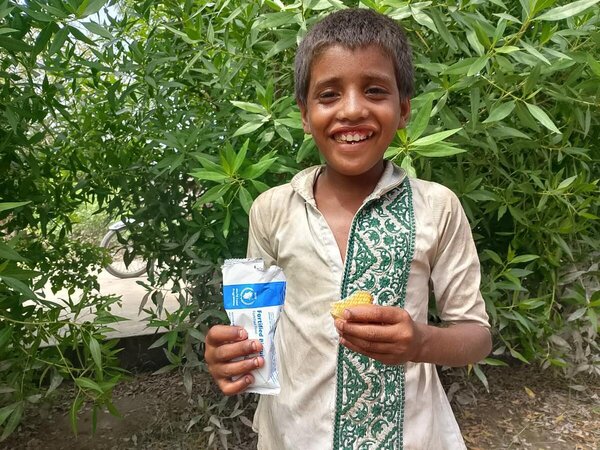
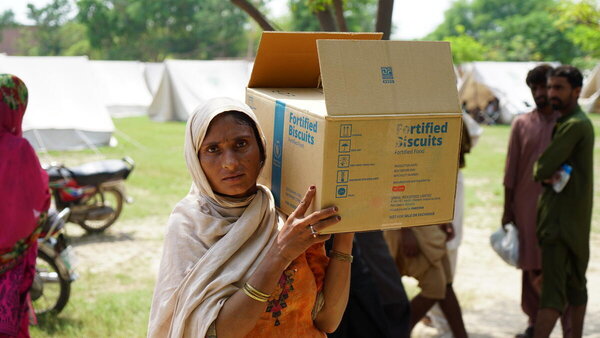
He added: “In the next few days, we are reaching a further 130,000 people with fortified biscuits.”
WFP is also helping the Government and humanitarian partners deliver aid faster by providing shared logistics support – including installing, pre-positioning and donating mobile storage units that allow relief items to be stored safely and close to affected communities.
The next step on the road to recovery is unconditional cash transfers. “Families who lost their homes or belongings receive the first payments during this desperate phase, as their food security is expected to remain affected until the next harvest,” said Frith-Powell. “Then, about a month later, support is linked to community activities such as cleaning drainage canals or repairing small structures, to help communities to recover.”
For working families like Tayyaba’s, putting meals on the table was already a struggle, even before the floods.
Having already taken out a loan, she has no way to pay for school fees.
“I feel so broken when I see my children hungry and unable to go to school,” she said. “We have no home – how can they learn?”
While responding to urgent humanitarian needs, WFP continues to work with the Government of Pakistan’s social protection system – particularly through the Benazir Nashonuma Programme for stunting prevention. The BNP provides essential nutrition support to mothers and children through 542 centres across the country.
Since its launch in 2020, the BNP has reached more than 3.5 million women and children as it delivers some of the strongest nutrition results ever recorded globally. This includes a 20 percent reduction in stunting among infants aged under 6 months; and a 7 percent reduction in small and vulnerable newborn birth.
